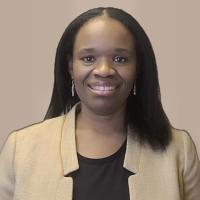Ebony Holliday, PhD, assistant director of Community Programs at Kennedy Krieger Institute’s Center for Autism Services, Science and Innovation (CASSI), says that many children, adolescents, and even adults are diagnosed with autism spectrum disorder (ASD) later than what would be ideal. Getting diagnosed and supported in the early years can significantly help with language development and socialization, but it is never too late to access resources and supports to help in all areas of life.
This video appears in:
Transcript
Late diagnoses are definitely something that is a reality for many individuals, children, adolescents, and even adults. So we definitely know there are many adults out there that are only later in life are getting those diagnoses and are learning more about themselves through that. And so I would say it’s never too late to get a diagnosis. Sometimes it is beneficial, even on an individual level. So let’s say somebody gets a diagnosis in adolescence or adulthood, that can also help them to understand themselves a little bit more and to be able to know where to seek services if they feel like they would benefit by intervention and by different types of services that may be available. It also, I think, opens up for families or even on an adult level for access to the community, so be having access to resources. So I would say it’s never too late. Interventions and access to services, access to support could be beneficial at all ages. We know that those early years are really where it’s crucial, and that’s really where we want to get in those services to support language and development. But again, at any age, intervention and diagnosis can be helpful.
